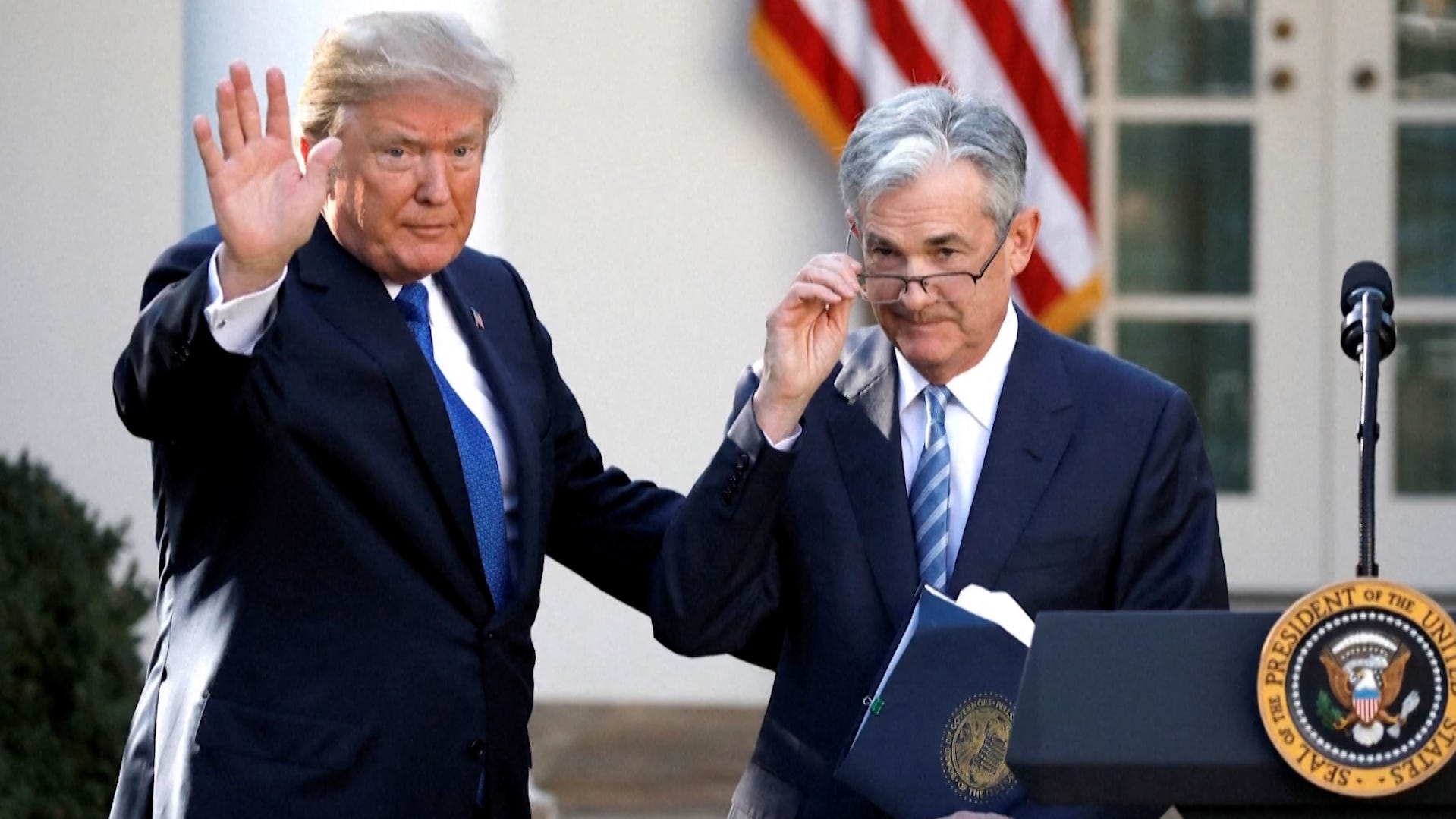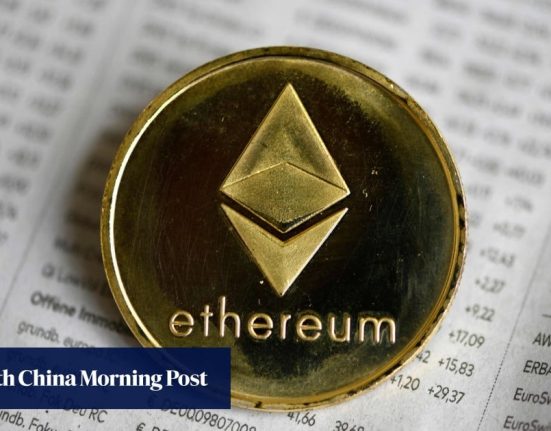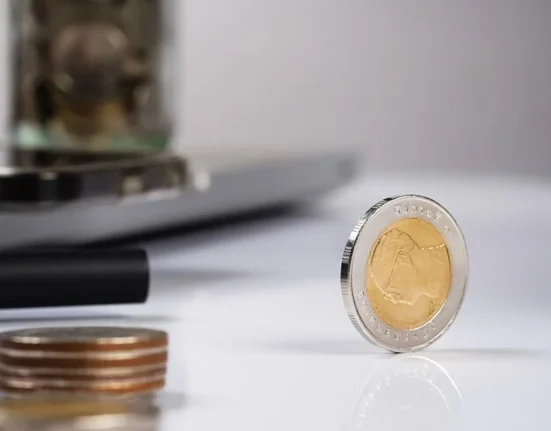
Who is Fed Chair Jerome Powell?
Jerome Powell’s feud with President Donald Trump has been making headlines. Here’s everything you should know about the Fed chair.
U.S. stocks closed higher on Aug. 22, with the blue-chip Dow ending at a new record, after Federal Reserve Chairman Jerome Powell suggested an interest rate cut may be coming soon.
Powell said at the annual Jackson Hole Economic Symposium of global central bankers and finance chiefs that “with policy in restrictive territory, the baseline outlook and the shifting balance of risks may warrant adjusting our policy stance.” He also suggested that price increases due to tariffs would be short-lived.
The CME FedWatch tool that tracks the odds the market puts on a rate move at each Fed meeting shows the chances for a quarter-point cut at the next policy meeting in September soared to nearly 90% from about 71.5% before the remarks. Lower interest rates means the cost of borrowing drops, which potentially allows consumers to spend more and businesses to make more investments. That can boost the economy.
The Dow rose 1.89%, or 846.24 points, to 45,631.74; the broad S&P 500 added 1.52%, or 96.74 points, to 6,466.91; and the tech-laden Nasdaq gained 1.88%, or 396.223 points, to 21,496.535. The benchmark 10-year yield fell to 4.256%.
At the last policy meeting in July, most policy makers were more concerned about elevated inflation than the labor market, but that was before the shockingly weak July payrolls report.
Powell “emphasized the moderating employment market as opposed to still elevated inflation,” said Jack McIntyre, portfolio manager at investment management firm Brandywine Global “What we don’t know is whether it will be a hawkish rate cut where the Fed takes a patient path of lowering rates.”
What the bond market thinks of Powell’s flip
Analysts at Dutch bank ING noted that the U.S. Treasury yield curve is steepening, with near-term yields dropping but longer-end yields remaining relatively more elevated. “This likely reflects a suspicion that the Fed could be taking risks with inflation here,” they wrote in a note.
They said Trump’s threat to fire Fed governor Lisa Cook for allegedly falsifying bank documents and trying to reshape the Fed to lean towards lower rates is likely also helping to keep long-dated yields higher.
“The front end (yields of shorter-dated U.S. Treasuries) won’t care about this, as it is slavish to where the fund rate goes,” the analysts said. “But the back end is a deeper thinker, and can worry about second and third round effects, and especially on medium-term risks potentially being taken on inflation.”
Tariff relief
Canada said it’s dropping retaliatory tariffs of 25% on U.S. goods, but keeping the ones on U.S. autos, steel and aluminum for now. The change goes into effect on Sept. 1, Canadian Prime Minister Mark Carney said.
The move is expected to kick-start negotiations with the United States, he said.
Corporate news
- Intel stock rallied 5.53% after President Donald Trump said the government is looking into taking a 10% stake in the trouled chipmaker. The government won’t be on the board or play a major role in the company’s governance.
- Intuit’s results in the last three months of its fiscal year beat forecasts. However, it sees sales growth in the first three months between 14% and 15%, below Wall Street estimates. The software company’s stock fell 5.03%.
- Zoom Communications beat second-quarter estimates. It also raised its full-year outlook. The stock jumped 12.71%.
- Ross Stores’ second-quarter results topped expectations. The discount retailer also reinstated its full-year guidance and said tariffs hadn’t hurt its profits as much as expected. Shares rose 1.12%.
- Alphabet’s Google reportedly won a six-year, $10 billion cloud contract from Meta. Alphabet’s shares added 3.17%.
- Nvidia has told component suppliers including Samsung Electronics Co. and Amkor Technology Inc. to stop production related to the H20 AI chip, the Information reported. China has reportedly told local companies to stop using Nvidia chips. Reuters reported earlier that Nvidia’s working on a new advanced chip called B30A to sell in China, and the chief executive said it’s in talks with the U.S. to do so. The chipmaker’s stock gained 1.72%.
- Workday’s second-quarter results topped estimates but some of the company’s third-quarter outlook was below Wall Street expectations. Shares shed 2.77%.
- Taiwan Semiconductor Manufacturing is discussing returning U.S. government subsidies if the Trump administration asks to become a stockholder, the WSJ said. Shares rose 2.44%.
- Tesla faces a new federal probe after the NHTSA found some of the company’s crash reporting to the agency had been significantly delayed. Shares jumped 6.22%.
Cryptocurrency
China is considering allowing the usage of yuan-backed stablecoins for the first time to boost wider adoption of its currency globally, Reuters reported, citing sources familiar with the matter said. This would be a major reversal of its stance towards digital assets, and it is expected to be approved by China’s State Council, the story said.
Bitcoin was last up 3.64% at $116,620.90.
(This story was updated with new information.)
Medora Lee is a money, markets and personal finance reporter at USA TODAY. You can reach her at mjlee@usatoday.com and subscribe to our free Daily Money newsletter for personal finance tips and business news every Monday through Friday morning.






